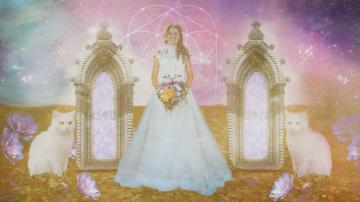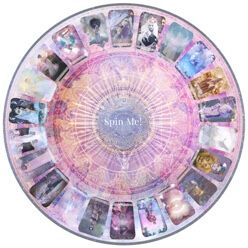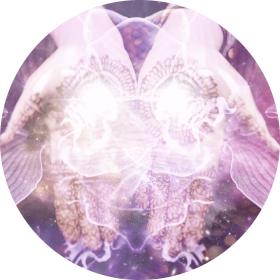Christmas Carols

Uncover hidden superstitions meanings
We all love the sound of carol songs at Christmas.
Caroling use to be the word people used to reference the dance or singing of songs to embrace Christmas. Many of the traditional carol songs are about Jesus. It makes it extra magical and enables us to fully appreciate the Christmas atmosphere. Before carol singing in public became popular, there were sometimes official carol singers called Waits. The reason for this name given was that they only sang songs on Christmas eve. Sometimes these would be known as “Watchnight”people - because it was associated with Shepherds watching the sheep in the fields. In essence these were the first carol singers. when the Christmas celebrations began.
Carols were sung originally many many years ago. Surprisingly, these were not Christmas Carols - but general pagan songs which were often sung on the 21st of December in celebration of the Winter Solstice. Carols used to be written and sung during the whole year. As our modern world has progressed we have found that songs sung at Christmas have been the only surviving ones. This is unfortunate! As the carol songs originate from the Winter Solstice, at this time, many orchestras and choirs were being set up in the cities of England and people wanted Christmas songs to sing, so carols once again became popular. Many new carols, such as 'Good King Wenceslas', were also written in the Victorian period.
Early carols include a carol known as "Angels Hymm", which was often sung in Rome at Christmas time. In 1647 Oliver Cromwell and the Puritans ruled England. With this new power the celebration of Christmas and singing carols was not allowed. People still wanted to celebrate Christmas, therefore they sang the songs in in secret. Carols were not sung until the Victorian era. Why did Christmas songs start again? Two men called William Sandys and Davis Gilbert collected a range of Christmas music from different villages in England.
Often parts of the carol songs were sung in Latin. Obviously, this made it hard for people to understand so they tried to keep the carols in a the native language. These carols were sung in nativity plays. The nativity started in Italy. The audience often appreciated the play in whatever language they could understand so Latin slowly became obsolete. The songs were sung in other countries, once the words had been translated including: France, Spain, Poland, Germany and the USA.
The first carol was recorded to be produced in 1410 - a long time ago! Most of the carol’s sung and produced were loosely based around Mary and Jesus and the story of the birth of christ in Bethlehem. Looking at the origin of carols they have been popular from the 1400’s and Elizabethan era are not true, normally songs about family events and were seen as an entertaining factor rather than religious in nature if we look at the early Christmas carols. Traveling minstrels or singers started singing such carols. The words were sung in the native lauguage.
During 1223 there was a Christmas tradition created by a church in Rome, St Francis of Assisi constructed the first nativity scene in the village square. He made the actors sing carols in Latin and children gathered around to sing the songs. These were probably the first carol singers! The nativity plays became more complex and with it popular each year. New songs began being sung and the songs began to take a life of ones own. In time, professional carollers started travelling around entertaining audiences with various songs, locals learned the songs from the streets and began singing them in their homes. Children then came together to sign the songs, especially in church. There was a negative effect though, the church was worried that if they had lost control of singing in church - as people sung in the streets that the faith would be lost.
Early Christians took over the pagan solstice celebrations for Christmas and gave people Christian songs to sing instead of pagan ones. In 129, a Roman Bishop said that a song called "Angel's Hymn" should be sung at a Christmas service in Rome. Soon after this many composers all over Europe started to write 'Christmas carols'.
Let’s now look at some popular carol songs. Probably the World's most prominent carol is available in a number of various translations from Germany, the name we all know! This famous song is known as “Silent night." It began as a rhyme by the Austrian Catholic clergyman Papa Josef Mohr in 1816. Years later on it is still the carol song that most people sing and has remained popular. Mohr was curate at the parish church of St Nicola in Oberndorf when he asked the organist as well as regional teacher Franz Xaver Gruber to place songs to his words.
Christmas carols
Silent Night: The top song of all time is the wonderful “silent night.” But where does the song originate from? A small town in Austria called Oberdof be Salzburg was where the song originated from, by a man called Franz Gruber. The song was sung on Christmas eve in a village in Austria. Unfortunately the original manuscript is lost but the song stayed and became popular during the Great War.
Good King Wenceslas: The actual carol was written by John Mason Neale in England. It was written in West Sussex at a college known as Sackville. John was studying at this college during the time. This song came from the account of an actual person - there truly was a real Wenceslas. He lived in Vaclav in the Czech republic. He was a Duke of Bohemia instead of a king. This man was a Christian and was unfortunately murdered by his brother Boslav followers. Many stories surrounded the murder and conspiracies. Going back to the story of the Duke. Wenceslas’s grandmother known as Ludmilla took control of his care as his father died when he was just twelve years old. He could not actually become a Duke until he reached eighteen. She smuggled various priests into the home to teach him to be a Christian. It is believed that for some reason the mother had Ludmilla the grandmother murdered. Despite the death of the grandmother Wenceslas had a good rounded education and later his brother Boleslav’s followers killed him. It is unknown if the story is fictitious but Wenceslas did exist.
By Florance Saul
Dec 14, 2016







